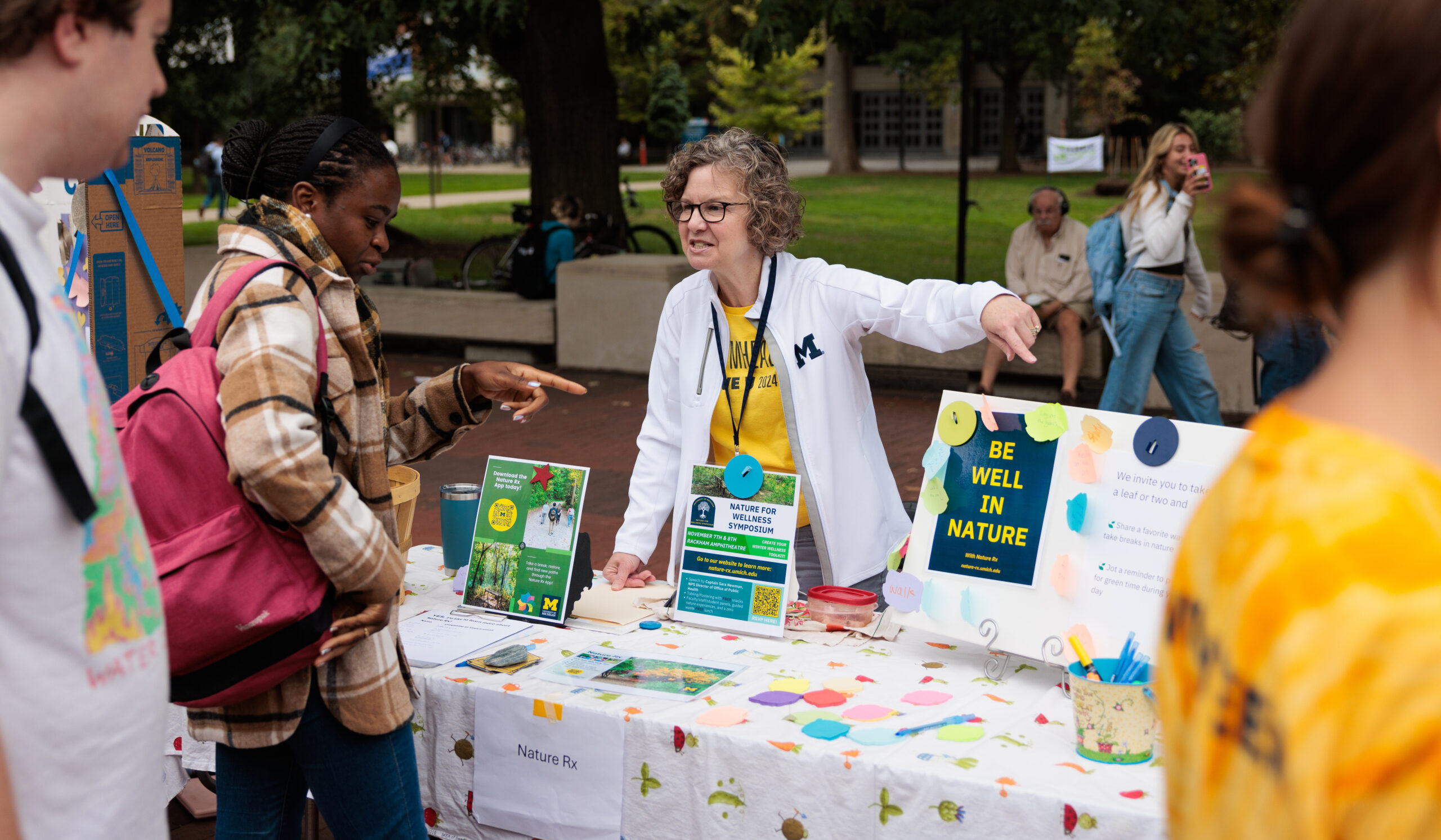As Host and Executive Producer of public radio’s acclaimed storytelling program “Snap Judgment,” Glynn Washington, ’92, JD’96, is drawn to stories that “bob and weave.” They draw listeners in, hold their attention, and let go only after a satisfying ending.
Washington’s own life story has followed a similar pattern of bobbing and weaving. The Michigan native was raised in the Worldwide Church of God—which he describes as an “apocalyptic cult.” Rather than attend the organization’s Ambassador University in California, he received his degree at U-M, where some of his best memories were telling stories as a writer for The Michigan Daily. He also had a “really, really magical year” in Japan studying abroad and even returned there to work after graduation.
Later, Washington would receive a law degree at U-M and become a tax attorney, only to discover he hated tax law. So more bobbing and weaving ensued as he set out for California to work for nonprofits. Then, one day, he heard about a radio show contest that eventually led to “Snap Judgment.”
He shares these details with the same enthusiasm and intensity that draw listeners into “Snap Judgment.”
How did you, with a U-M law degree, end up as a public radio host? That’s an accidental path. A decidedly undeliberate path. I was never one of those people with a clear goal. I worked for Ernst & Young, a big accounting firm. But I realized I was digging myself into a hole. So I loaded up my Honda Civic in Michigan, I drove to California, and I crashed on a friend’s couch for a few weeks. Then I got into running nonprofits.
You said you realized the value of storytelling when you were working in nonprofits. What do you mean? I was never working for a group that was flush with resources. To get a battered women’s shelter built or to have a child development program started, the only currency I ever had was storytelling. And even the most jaded, cynical, corrupt politicians, you’ve got to hope they still have a heart.
And it was around that time that you entered a contest to host a public radio show, even with no experience. What story did you submit as your entry? I had a little, tiny baby daughter at the time. I was like, “Sit right there darlin’. I’m going to tell you a story.” And it was completely inappropriate, an amalgam of stories about a person who had gotten out of prison in Oakland and some of the decisions he had to make. I recorded it on my desktop Mac, I put my baby girl to bed, and I sent this thing off. About three months later, I got a call and they said I was one of 10 finalists nationwide. I thought it was my buddy Mark (Ristich, now the producer of “Snap Judgment”) playing a joke on me, so I hung up. They called back and said, “We don’t know who Mark is, but do you want to do this?”
Did you win? I was one of three winners (along with Al Letson and Rebecca Watson). The problem was that there was really no “prize.” But a few months later I got a call asking me to pitch a project to the Corporation for Public Broadcasting (for the Public Radio Talent Quest). To make a very, very long story short, after some time there, they gave me the funding to launch season one of “Snap Judgment.”
Did you feel you had a unique perspective to bring to public radio? I hadn’t heard stories from my community, communities I knew about. What we really wanted to do was to be able to tell stories from the people who were living them and to get out of the way.
Do you feel any special responsibility as a minority to tell minority stories? I do feel a responsibility for whatever, whatever I would be doing. I want to make sure that I’m building ladders as opposed to constructing walls. I want to bring people up. I think it’s important to have female voices on this show and to have minority voices, of course. It saved us so many times to have a diversity on staff, so everyone’s looking at the world from a different perspective.
What makes a good story for you? I’m looking for someone that’s taking me somewhere that I haven’t been before. “Snap Judgment” heroes are people who are living their lives. Every story that I’ve really ever liked, at some point, someone had to walk off the plank, make a decision, and follow that decision out. That is most often the very start of a “Snap Judgment” story.
Did your early experience of having been raised in the Worldwide Church of God inform your work? It’s crucial. I grew up believing that I was one of a chosen few who had the special keys that unlocked the Book of Revelations in the Bible and that the world was on the cusp of catastrophe; it was going to end any moment. And then to grow up and have that story exposed as a lie. Does it inform what I do now? Oh yeah. It informs it a lot.
“Snap Judgment” is innovative with its use of music. Why is that important? We call it “storytelling with a beat.” It’s almost like a dual narration that’s going on. I can give you clues and emotional contexts through sound. And that’s not just music— sometimes you’ll hear a cock crow or a door slam. This is not something that I’m doing by myself. This amazing team of musicians (music editor/producer Pat Mesiti-Miller and live music director Alex Mandel), we’re looking for the same thing: What is the emotional heart of this story? How do we pull listeners through it?
You’re a big fan of Ira Glass, host of NPR’s “This American Life.” What other radio programs and podcasts do you listen to? I was just listening to Benjamin Walker’s “Theory of Everything,” which is a Radiotopia show. Benjamin Walker is brilliant. “The Memory Palace.” “Invisibilia.” “Death, Sex & Money” with Anna Sale. “Another Round” is a fabulous show. “Strangers” podcast is a great one. Nick van der Kolk ’s “Love + Radio.”
Is there any story you want to tell that you haven’t told yet? So many. We’ve just scratched the surface. The one prerequisite for people who work here is curiosity. The minute you ask yourself, “What happened next?” you’re off to the races.
FAVORITE STORIES
Glynn Washington said that asking him to name his favorite “Snap Judgment” stories is like asking him to name his favorite child. We wouldn’t ask him to name his favorite child, but we did press him for a list of his favorite stories. All of the following can be found on the program’s website, snapjudgment.org.
“J Dilla’s Lost Scrolls”
When a record store owner buys an old record collection out of an abandoned storage unit, he has no idea what he’s stumbled across.
“Get Right With Your God”
Donald Cabana thought he understood his job as prison warden, but never knew it would cost so much.
“Insidious”
Shannon is a bank manager who likes to gamble. That’s a problem.
“The Gold Ring”
What would you do if your best friend called to say she found the Buddha?
“First Friend”
What is the one thing that a two-and-a-half-pound newborn baby needs more than anything else?
Sharon Morioka, ’84, MA’86, is the editor of Michigan Alumnus.





